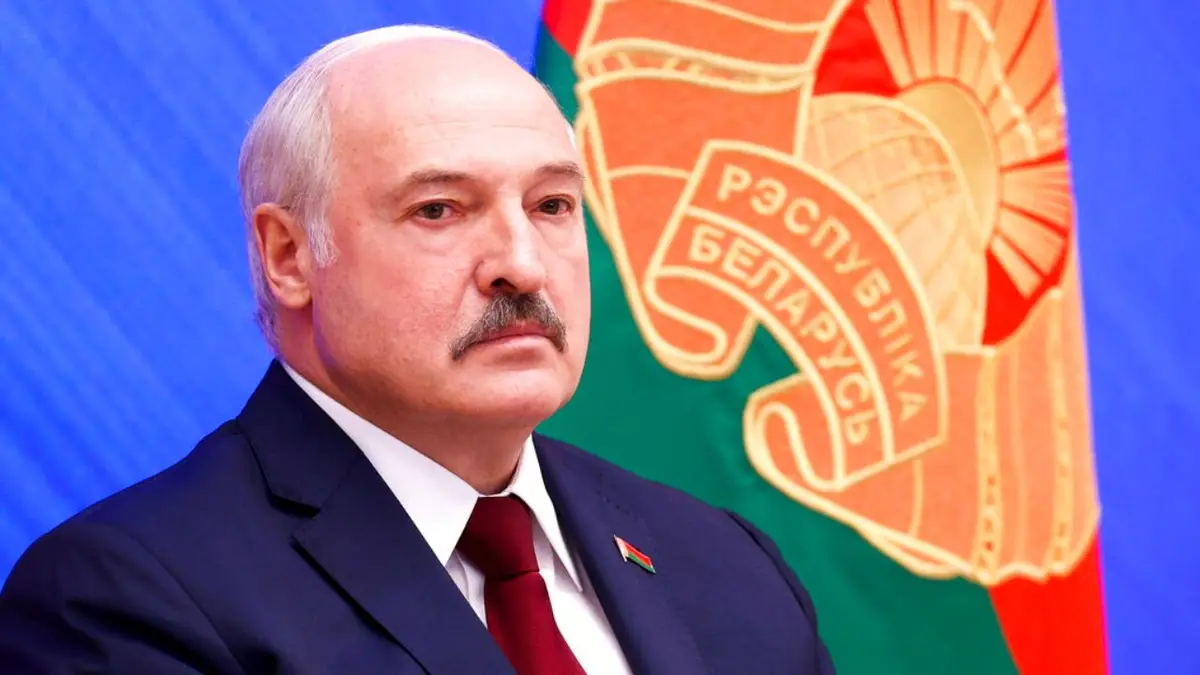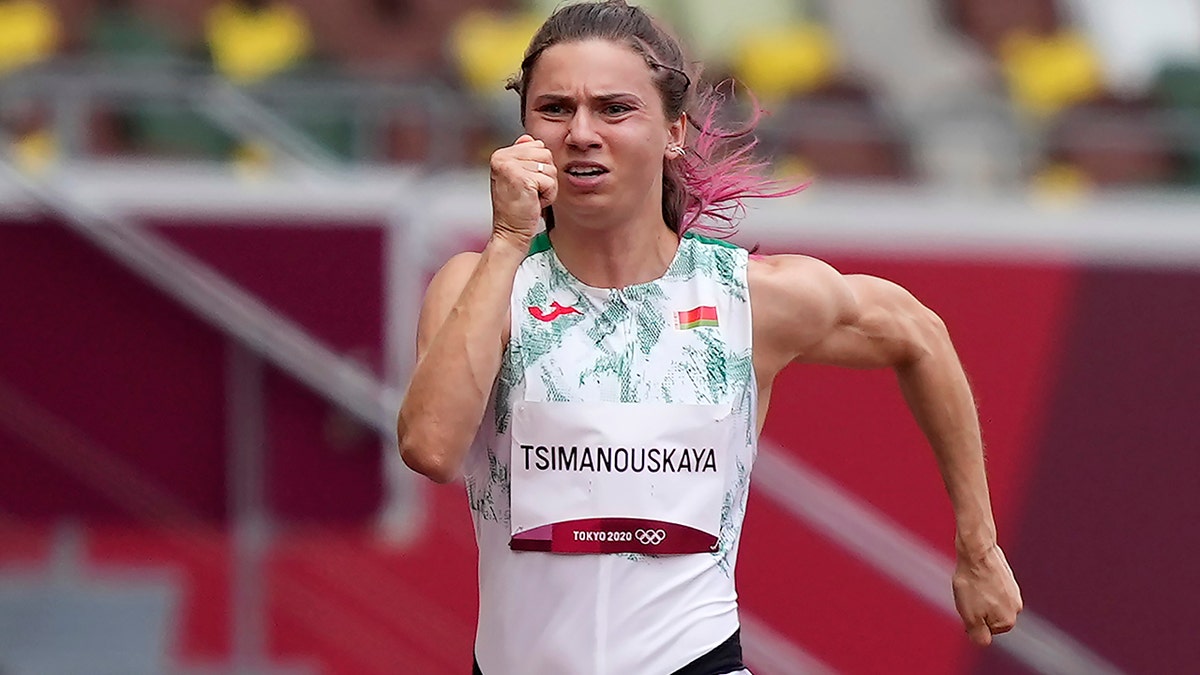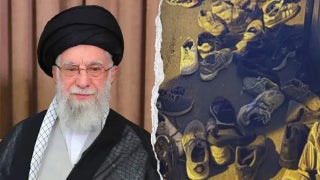Belarus opposition figure says Lukashenko should be called 'terrorist'
Former Amb. Vladzimir Astapenka speaks to Amy Kellogg 1 year after disputed elections
August 9 marks a year since the disputed elections in Belarus. In the months that followed, hundreds of thousands of people took to the streets regularly, convinced the ballot was rigged, their vote stolen.
The crackdown was so brutal that eventually, protestors stopped going out. People were even arrested for wearing or displaying the colors of the red and white flag that is the opposition's signature. According to human rights groups, 35,000 people were arrested, at least 10 were killed while thousands fled the country fearing repercussions in the aftermath of last year's presidential election.
President Alexander Lukashenko, who has ruled Belarus for 27 years, sees an alternate reality – of sabotage, "scum" protestors and western plots to destabilize him. He marked Aug. 9 this year with a press conference to proclaim victory yet again, victory over what he saw as an attempted coup.
The event was called "A Big Conversation with the President" and was broadcast live.

Belarus' authoritarian leader on Monday charged that the opposition was plotting a coup in the runup to last year's presidential election that triggered a monthslong wave of mass protests. (Maxim Guchek/BelTA photo via AP)
BIDEN PUSHES SANCTIONS AGAINST BELARUS' LUKASHENKO REGIME
It lasted eight hours, without breaks. Much of the time was taken up with paeans sung from the audience and applause.
Meanwhile, President Biden marked Aug. 9 by slapping a raft of new sanctions on Belarus, hitting at the potash sector, the country's cash cow, and the Belarussian National Olympic Committee among other entities. The move followed the UK laying on similar sanctions of its own. Lukashenko was asked about the British sanctions on Monday.
"You can choke on those sanctions there in the UK!" the Belarussian leader thundered. "We haven't had even a faintest idea for a millennia about this Great Britain, and we don't want to have one. You are America's lap dogs!"

Belarusian President Alexander Lukashenko attends an annual press conference in Minsk, Belarus, Monday, Aug. 9, 2021. (Pavel Orlovsky/BelTA photo via AP)
Often called "Europe's last dictator," Lukashenko brought up the unflattering nickname himself today, sneering and dismissing it as a misnomer. But former Belarussian ambassador, now head of diplomacy for the National Anti-Crisis Management group, Vladzimir Astapenka, said he and his cohorts would like to see Lukashenko called something worse.
"We have an idea we are developing to appeal to the world community to declare Lukashenko a terrorist," he told Fox News. "Because what is he doing is exactly the crime of state terror, applied first to his own population, second to the citizens of other countries with this Ryanair flight hijacking and third with the promotion of illegal migration, with the tortures. We believe there are many legal grounds to say this regime is terrorist."
Lukashenko flatly denied the widespread reports of beatings in the aftermath of the protests. But then at one point conceded some prisoners "got it," but only because they'd asked for it, by attacking security services. The former collective farm boss has ruled the former Soviet republic with an iron fist, something he is proud of. But the regime's actions in recent months have been more aggressive than perhaps any time in recent memory. Lukashenko's security services forced a Ryanflight from Greece to Lithuania, two European Union countries, to make an emergency landing in Belarus in May. According to Minsk, there had been a bomb scare. But the result of the dramatic detour was that a dissident, Roman Protaseivich, and his girlfriend, Sofia Sapega, were plucked off that flight and arrested.
BELARUS' OLYMPIAN IN POLAND AFTER SEEKING HELP FROM POLICE AT TOKYO AIRPORT
In recent months, as a response to sanctions, Belarus has sent thousands of Iraqi and African migrants through the woods across the European Union's eastern border, something that is being called the newest form of hybrid warfare, amidst allegations many of these weaponized migrants have been imported from their far-flung homes by Lukashenko for the very purpose of releasing them on Europe.
And then there was the case of the Olympic sprinter Krystsina Tsimaouskaya. The Belarussian athlete, after a stand-off in Tokyo airport, managed to get asylum in Poland after claiming she was being forced to return to Belarus for complaining about the way she'd been pushed into a race she hadn't signed up for. Lukashenko dismissed this story on Monday and took a shot at her while he was at it.
"She's the 36th in her discipline, the 36th! There is nothing more to be said," he said.

Krystsina Tsimanouskaya, of Belarus, runs in the women's 100-meter run at the 2020 Summer Olympics, Friday, July 30, 2021. (AP Photo/Martin Meissner)
The mysterious death of a young Belarussian in Kiev, the Ukrainian capital, also cast doubt on the regime's actions and reach last week. Vitaly Shishov was the head of Belarussian House, which helps people escape repression. He disappeared after a jog and was later found hanged. Some believe Lukashenko's henchmen may have killed Shishov to send a signal and strike fear in the hearts of the exile community. Friends said he'd been followed for a while. Lukashenko today took umbrage at the very suggestion.
"Who was he for me and for Belarus?" he asked in response to a question about the death. "For us, he was a nobody."
CLICK HERE TO GET THE FOX NEWS APP
Vladzimir Astapenka said that it is fear and threats that keep Lukashenko in power.
"Repression, repression, repression," he said, summing it up. "I would call it a terrorizing of the population and the building of a concentration camp in the center of Europe."









































